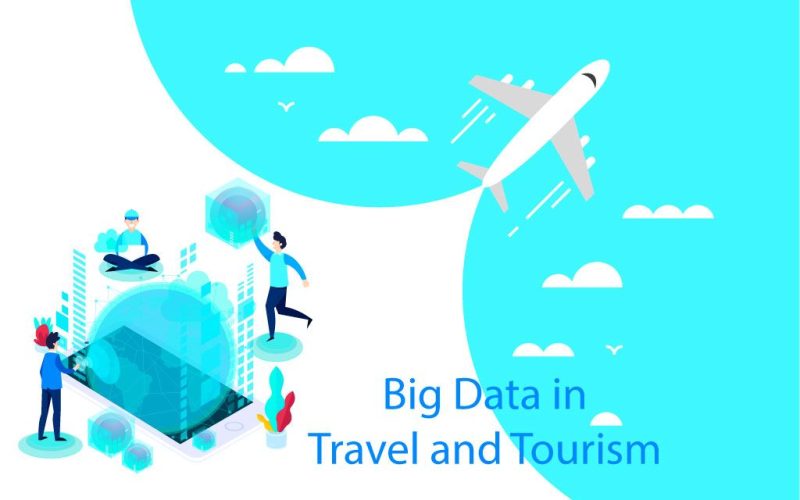The travel industry has always been driven by the desire to provide memorable experiences. However, the advent of Data in Travel has taken this ambition to new heights. By analyzing vast amounts of data generated by travelers, companies can gain unprecedented insights into customer behavior, preferences, and trends. This information is then used to create personalized offerings that enhance the travel experience, making it more enjoyable and efficient.
Understanding Big Data in Travel
Big data refers to the massive volume of structured and unstructured data that is generated every second. In the travel industry, this data comes from various sources such as booking engines, social media, mobile apps, and IoT devices. The sheer volume, variety, and velocity of this data make it a valuable asset for companies looking to gain a competitive edge.

Data Processing and Analysis
The role of big data in travel personalization begins with the collection and processing of this data. Advanced analytics tools and machine learning algorithms are employed to sift through the data, identify patterns, and generate actionable insights. These insights are then used to create personalized travel experiences that cater to individual needs and preferences.
Personalization in Travel
Personalization in travel refers to the customization of travel experiences based on individual preferences and behavior. This can range from personalized recommendations for destinations and activities to tailored communication and offers.
Personalized Recommendations
One of the most visible applications of big data in travel personalization is the ability to provide personalized recommendations. By analyzing past behavior, preferences, and trends, companies can suggest destinations, hotels, and activities that are most likely to appeal to individual travelers.
- Destination Recommendations: Big data can identify trending destinations and match them with traveler preferences, ensuring that recommendations are relevant and appealing.
- Accommodation Suggestions: By analyzing past booking data and preferences, companies can recommend hotels and accommodations that match the traveler’s style and budget.
- Activity and Experience Suggestions: Personalized recommendations for activities and experiences can enhance the travel experience, making it more enjoyable and memorable.
Tailored Communication
Effective communication is crucial in the travel industry, and big data enables companies to tailor their communication strategies to individual preferences. This can include personalized emails, notifications, and offers that resonate with the traveler.
- Email Personalization: By analyzing data on email engagement and preferences, companies can send targeted emails that are more likely to be opened and acted upon.
- Push Notifications: Mobile apps can use location data and preferences to send timely and relevant push notifications, enhancing the traveler’s experience.
- Special Offers: Personalized offers and discounts can be tailored to individual preferences, increasing the likelihood of conversion.
Enhancing Customer Experience
The role of big data in travel personalization extends beyond recommendations and communication. It also plays a crucial role in enhancing the overall customer experience.
- Seamless Booking Process: Big data enables a more streamlined and efficient booking process, reducing friction and enhancing the user experience.
- Real-Time Assistance: By leveraging real-time data, companies can provide timely assistance and support, addressing issues before they escalate.
- Loyalty Programs: Personalized loyalty programs can reward travelers based on their preferences and behavior, increasing customer retention and satisfaction.
Operational Efficiency
Big data not only enhances the customer experience but also improves operational efficiency within the travel industry. By analyzing data on operations, companies can identify inefficiencies, optimize processes, and reduce costs.
Predictive Analytics
Predictive analytics uses historical data to forecast future trends and behavior. In the travel industry, this can be applied to various aspects such as demand forecasting, pricing optimization, and resource allocation.
- Demand Forecasting: By analyzing historical booking data and trends, companies can predict future demand and adjust their offerings accordingly.
- Pricing Optimization: Dynamic pricing models can be used to optimize pricing based on demand, competition, and other factors, maximizing revenue.
- Resource Allocation: Predictive analytics can help companies allocate resources more efficiently, reducing waste and improving operational efficiency.
Operational Insights
Big data provides valuable insights into various aspects of operations, enabling companies to identify areas for improvement and implement changes.
- Supply Chain Optimization: By analyzing data on the supply chain, companies can identify bottlenecks and inefficiencies, improving overall efficiency.
- Customer Service: Data on customer interactions and feedback can be used to improve customer service, addressing issues and enhancing satisfaction.
- Performance Monitoring: Real-time data on operations can be used to monitor performance and identify areas for improvement, ensuring optimal efficiency.
Image by: yandex.com
Challenges and Considerations
While the role of big data in travel personalization offers numerous benefits, it also presents several challenges and considerations.
Data Privacy and Security
The collection and use of personal data raise concerns about privacy and security. Companies must ensure that they comply with data protection regulations and implement robust security measures to protect customer data.
A Data Quality and Accuracy
The effectiveness of big data in travel personalization depends on the quality and accuracy of the data. Companies must ensure that they collect accurate and relevant data and implement measures to maintain data quality.
Integration and Interoperability
The integration of data from various sources can be challenging, especially when dealing with different formats and systems. Companies must invest in technologies and solutions that enable seamless integration and interoperability.
Conclusion
The role of big data in travel personalization is transforming the travel industry, enabling companies to offer highly customized experiences that cater to individual preferences and needs. By leveraging data from various sources and employing advanced analytics, companies can gain valuable insights into customer behavior and trends, enhancing the travel experience and improving operational efficiency. While challenges and considerations exist, the benefits of big data in travel personalization are undeniable, making it a crucial component of the modern travel industry.











